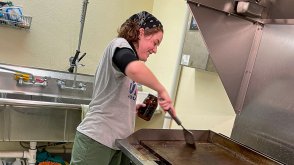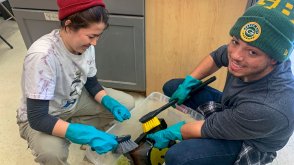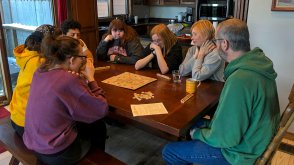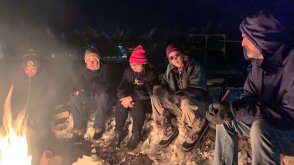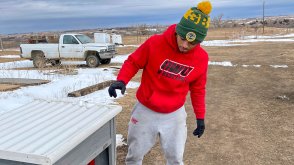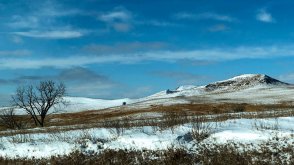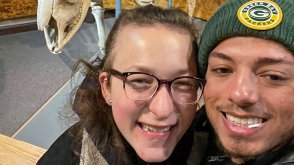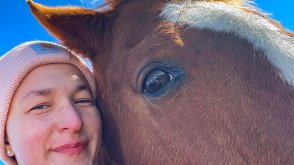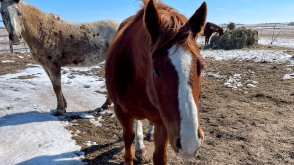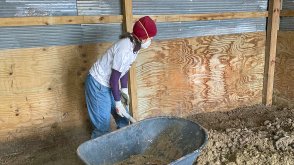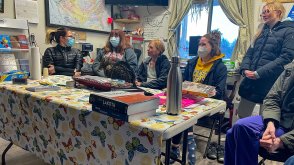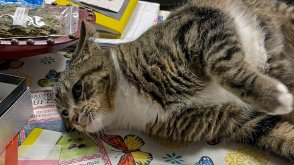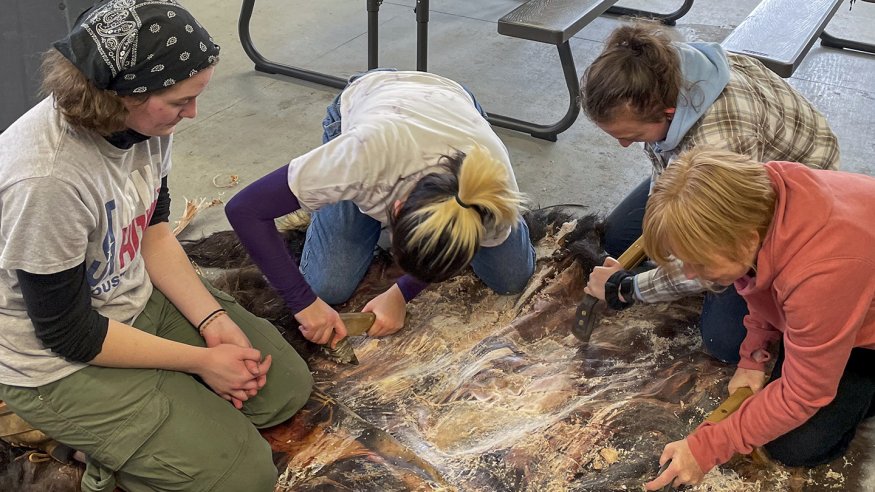
‘Building and Rebuilding’
Ohio Wesleyan Students Complete Spring Break Service with Lakota Nation
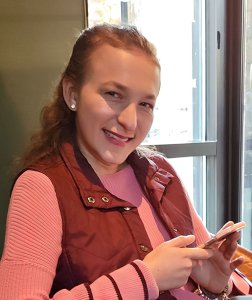
Name: Callia Barwick ’24
Hometown: Canfield, Ohio
Major: Pre-Law and Politics and Government
Minor: History
OWU Connection Experience: Spring Break Service Team
During their weeklong spring break, eight Ohio Wesleyan students traveled to Lakota Nation, South Dakota, to participate in a week of “Building and Rebuilding.”
The group worked with the Lakota Youth Development, a nonprofit organization located on the Rosebud Sioux Tribe Reservation that has a mission of “reclaiming Lakota language, culture, and spirituality by promoting education and healthy lifestyles for our youth through culturally based strategies.”
Callia Barwick ’24, student team leader of the OWU Spring Break Service Team, shared her reflections on behalf of the group, which also included Lauren Barnes ’22, Meredith Frymyer ’24, SK Bulander ’23, Christian Tesnow ’24, Alyssa Head ’24, Thy Tran ’23, and Roe Black ’25. The students traveled with faculty-staff advisers David Soliday, instructional technologist, and Tami Panhuis, Ph.D., associate professor of Biological Sciences.
Key Takeaways
“We had so many takeaways from this trip that all pertained to the different individuals who participated in it. As a team, we learned what it meant to utilize your group strengths to accomplish tasks of all kinds.
“We also learned more about the Lakota history and their different cultural and spiritual traditions. An overriding lesson for us as a whole would be to appreciate everything that is provided for each of us and how unique we all are as individuals.”
Favorite Team and Personal Moments
“A favorite team moment for all of us would be getting to finally meet in person and getting to know each other. One of our last nights together, we played a large game of Scrabble and made so many memories and laughs.
“We also made so many memories working on all the different projects and tasks that the Lakota Youth Development Team would give us.
“It is hard for me (individually) to just pick one favorite moment about this experience because there are just so many. If I had to pick something to highlight, it would be the experience of learning how to flesh a hide (part of the process of creating buckskin or leather).
“This was something I never knew about, nor knew how to do before this trip, so it was really neat being able to do something traditional to Lakota, but also a valuable learning opportunity.”
Lessons Learned
“Being the student team leader, I was able to learn more about being a facilitator and team member, as well as how to work with team dynamics, how to make everyone feel comfortable in new situations and exposures, and even how to introduce new ways of thinking to a diverse group of individuals.
“I also learned new information about the Lakota way of living and all of the traditions that they have within their culture. I was able to also expand my agricultural background and learn about new ways of harvesting and utilizing the crops that grow within the plains.”
Why I Chose OWU
“I chose OWU actually by random luck when I saw a road sign for the exit to OWU on I-71 coming home from Columbus. I applied that very night and have never regretted my decision. OWU has already provided me with so many amazing opportunities and has supported me in all of my endeavors. I have loved every minute of being on this campus, with just so many amazing faculty and students.”
My Plans After Graduation
“I plan to leave OWU with a degree in Politics and Government/Pre-Law. With this degree, I hope to attend law school where I can study agricultural law and become an advocate for the agricultural community. I see this being a full-time job within Washington, D.C., or somewhere (that enables me) to represent women in agriculture and the agricultural system.”

